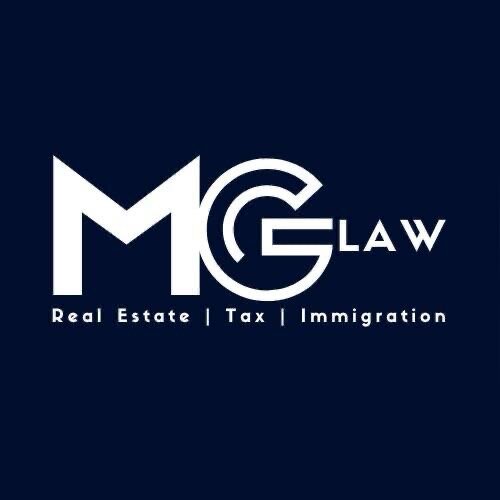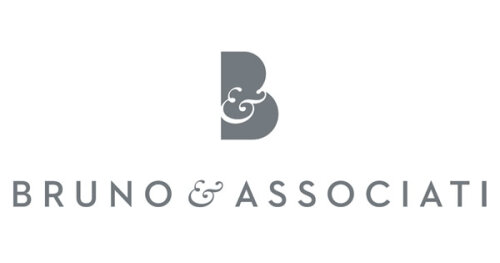Best Real Estate Lawyers in Milan
Share your needs with us, get contacted by law firms.
Free. Takes 2 min.
Free Guide to Hiring a Real Estate Lawyer
List of the best lawyers in Milan, Italy
Italy Real Estate Legal Articles
Browse our 2 legal articles about Real Estate in Italy written by expert lawyers.
- Italy CIN Rules 2025: Compliance for Airbnb Rental Hosts
- Short-term rentals in Italy (including Airbnb-style lets) must now have a National Identification Code (Codice Identificativo Nazionale - CIN) issued by the Ministry of Tourism. Existing hosts have a strict deadline (usually 60 days from the opening of the CIN portal) to obtain their CIN or risk fines of up... Read more →
- Buying Property in Italy as a Non-EU Citizen: Reciprocity
- Most foreigners can legally buy real estate in Italy, but non-EU buyers are subject to the Reciprocity Principle or must hold a valid Italian residence permit. US, UK, Canadian and Australian citizens generally benefit from reciprocity for residential property, but rules are nuanced and must always be checked against the... Read more →
About Real Estate Law in Milan, Italy
Milan, Italy is a bustling city known for its rich culture, history, and remarkable architecture. Whether you are considering buying, selling, leasing, or renting property in Milan, it is important to familiarize yourself with the real estate laws.
Real Estate Law in Milan, Italy governs the legal aspects of property transactions, including ownership rights, sale and purchase agreements, leases, and property development. These laws are in place to protect the rights and interests of both buyers and sellers, to ensure fair and transparent transactions, and to regulate property-related disputes.
Why You May Need a Lawyer
There are various situations where seeking legal advice from a qualified lawyer specializing in real estate law in Milan, Italy is highly recommended. Here are some common scenarios:
- You are planning to buy or sell property and need assistance with drafting or reviewing contracts, ensuring proper title transfer, and navigating legal procedures.
- You are facing a dispute related to property boundaries, ownership rights, or breach of contract.
- You are considering entering into a lease agreement and require legal guidance to negotiate favorable terms and ensure compliance with local regulations.
- You are involved in a property development project and need assistance with permits, zoning regulations, or construction agreements.
- You are a landlord or tenant dealing with issues such as rental disputes, eviction procedures, or lease renewal.
Local Laws Overview
When it comes to real estate in Milan, Italy, it is crucial to understand the key aspects of local laws. Here is a summary of some important elements:
- Ownership Rights: Property can be privately or publicly owned. Italian law emphasizes protection of property rights and provides guarantees against state intervention.
- Purchase and Sale Agreements: Real estate transactions require a written agreement between the buyer and seller, which must be registered with the Italian Land Registry for legal validity.
- Lease Agreements: Rental contracts must adhere to specific regulations, including minimum duration, notice periods, and limitations on rent increases.
- Property Taxes: Property owners are subject to various taxes, such as IMU (property tax), TASI (municipal services tax), and TARI (waste disposal tax).
- Building Regulations: Renovation and construction projects must comply with zoning and building regulations, obtaining the necessary permits and following specific procedures.
Frequently Asked Questions
1. Can a foreigner buy property in Milan, Italy?
Yes, foreign individuals and legal entities can buy property in Milan, Italy. However, certain restrictions may apply to non-EU citizens regarding agricultural land and properties close to sensitive areas like military bases.
2. Are real estate agents necessary for property transactions?
While not mandatory, using a licensed real estate agent is common practice in Milan. An agent can provide valuable assistance in finding properties, negotiating deals, and ensuring compliance with legal requirements.
3. How long does it take to complete a property purchase in Milan?
The timeline for property purchases in Milan can vary. On average, it takes around 2-3 months from the initial offer to the final transfer of ownership. However, this timeframe can be influenced by various factors such as negotiations, due diligence, and the presence of mortgages.
4. What are the typical costs associated with buying property in Milan?
The costs associated with buying property in Milan include notary fees, registration taxes, agent commissions (if applicable), and various administrative charges. On average, these costs can range from 7% to 10% of the property's purchase price.
5. How can I verify the property's legal status and ownership?
It is crucial to conduct a thorough due diligence process to verify the legal status and ownership of a property in Milan. This involves reviewing the Land Registry, examining the property's history, obtaining a survey report, and ensuring the absence of any outstanding debts or legal disputes.
Additional Resources
If you require legal advice or further information regarding real estate in Milan, Italy, consider reaching out to the following resources:
- Chamber of Commerce of Milan: Provides information about local real estate laws, property registries, and business support services.
- National Council of Notaries: Offers guidance on notary services, legal aspects of property transactions, and access to certified notaries in Milan.
- Italian Real Estate Federation (FIAIP): A professional association of real estate agents, providing access to qualified agents specializing in Milan properties.
Next Steps
If you require legal assistance in the field of real estate in Milan, Italy, follow these steps:
- Gather all relevant documents and information related to your specific situation.
- Identify reputable law firms or lawyers specializing in real estate law in Milan.
- Contact them to schedule an initial consultation, either in person or via phone/email.
- During the consultation, explain your situation and inquire about their expertise and fees.
- Select the lawyer you feel most comfortable working with and proceed with their guidance.
Lawzana helps you find the best lawyers and law firms in Milan through a curated and pre-screened list of qualified legal professionals. Our platform offers rankings and detailed profiles of attorneys and law firms, allowing you to compare based on practice areas, including Real Estate, experience, and client feedback.
Each profile includes a description of the firm's areas of practice, client reviews, team members and partners, year of establishment, spoken languages, office locations, contact information, social media presence, and any published articles or resources. Most firms on our platform speak English and are experienced in both local and international legal matters.
Get a quote from top-rated law firms in Milan, Italy — quickly, securely, and without unnecessary hassle.
Disclaimer:
The information provided on this page is for general informational purposes only and does not constitute legal advice. While we strive to ensure the accuracy and relevance of the content, legal information may change over time, and interpretations of the law can vary. You should always consult with a qualified legal professional for advice specific to your situation.
We disclaim all liability for actions taken or not taken based on the content of this page. If you believe any information is incorrect or outdated, please contact us, and we will review and update it where appropriate.
Browse real estate law firms by service in Milan, Italy
Milan, Italy Attorneys in related practice areas.














